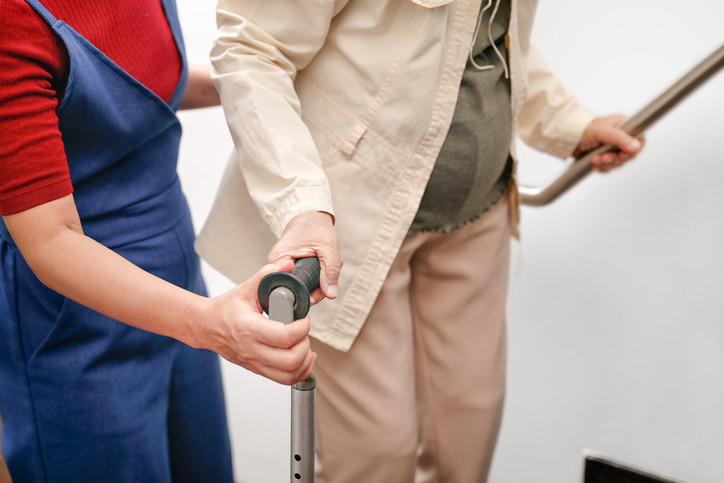
Less butter, more plant oils, longer life?

Healthier planet, healthier people

Counting steps is good — is combining steps and heart rate better?

Appendix pain: Could it be appendicitis?

Can saw palmetto treat an enlarged prostate?

How does Ozempic work? Understanding GLP-1s for diabetes, weight loss, and beyond

Zinc: What it does for the body, and the best food sources

Respiratory health harms often follow flooding: Taking these steps can help

Tips to leverage neuroplasticity to maintain cognitive fitness as you age

Can white noise really help you sleep better?
Independent Living Archive
Articles
Preventing falls in older adults: Multiple strategies are better
Falls among older adults are on the rise, but most are preventable. To do this, interventions must target the multiple factors that contribute to falls, taking steps to minimize them or prevent them entirely.
3 ways to build brain-boosting social connections
Most people know that as they age, they need to put effort into staying healthy by eating carefully, exercising, and getting enough sleep. But there is another element to healthy aging: keeping your mind engaged helps protect brain health, and one way to do that is by maintaining an active social life.
Shining light on night blindness
Night blindness makes it hard to see in dim or dark settings, which can affect safety at home and make driving dangerous after dark. While the cause varies, there are steps people can take to address these problems.
When should you hire in-home help or health aides?
Most people want to live at home for as long as possible as they age, and managing this successfully may mean hiring outside help. Considering this step raises many questions, and answering them honestly will help guide decisions about when and how to proceed.
How to stay in your own home longer
Two kinds of services help people remain in their homes longer. Home health care is covered by Medicare and brings professional nurses and therapists into the home to provide treatment. It's intended for people who are recovering from illness, injury, or surgery. Private duty care is not covered by Medicare. It provides the day-to-day help most people need for the activities of daily living, such as housekeeping and meal preparation. Care is available for a few hours or 24 hours per day.
What to do when driving skills decline
Many people experience a decline in their driving skills as they age. While some choose to stop driving, others resist. Whether it's you or a loved one, planning ahead can help you tackle fixable issues, make transitions easier, and avoid harming yourself or someone else.

Less butter, more plant oils, longer life?

Healthier planet, healthier people

Counting steps is good — is combining steps and heart rate better?

Appendix pain: Could it be appendicitis?

Can saw palmetto treat an enlarged prostate?

How does Ozempic work? Understanding GLP-1s for diabetes, weight loss, and beyond

Zinc: What it does for the body, and the best food sources

Respiratory health harms often follow flooding: Taking these steps can help

Tips to leverage neuroplasticity to maintain cognitive fitness as you age

Can white noise really help you sleep better?
Free Healthbeat Signup
Get the latest in health news delivered to your inbox!
Sign Up











